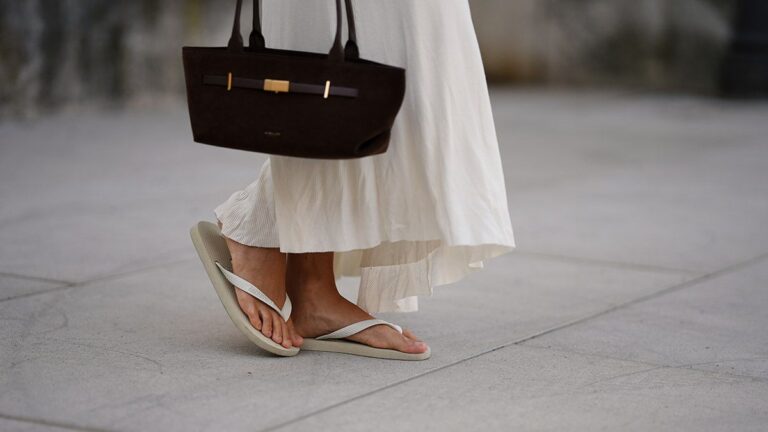“Some ‘sustainable’ flip flops have soles made of recycled tires, which contain many toxic chemicals,” says Sara Brosché, science advisor at the International Pollutants Elimination Network (IPEN). Tires are engineered to withstand extreme conditions and are full of synthetic additives, some of which are highly harmful to water systems and toxic to aquatic organisms.
While materials like cork and natural rubber may sound greener, scaling them to industrial levels can lead to issues like deforestation, biodiversity loss and exploitation of land and labour.
It’s why the word ‘natural’ itself can be misleading. “Natural doesn’t always mean ethical,” says Nick Savaidis, founder of Australian footwear brand Etiko. “What a lot of people don’t realise is that roughly 85 per cent of the world’s natural rubber is produced by smallholders, often in countries with weak labour protections and little transparency. Without proper oversight, that supply chain can be questionable.” Rubber extraction has also been closely linked to deforestation.
A growing number of brands are working to reduce harm through more thoughtful materials sourcing and supply chain transparency. Paula Pérez, co-founder of Nae Vegan Shoes, says this requires both innovation and rigorous supplier vetting. Nae exclusively works with partners that carry certifications like Oeko-Tex for non-toxic textiles and REACH (registration, evaluation, authorisation and restriction) compliance for chemical safety. “Our goal is to eliminate animal-derived materials entirely, avoid virgin plastics wherever possible, and prioritise renewable, recycled, or responsibly sourced alternatives,” Pérez says.
Nae uses cork that is harvested by stripping bark from cork oak trees without cutting them down, allowing the trees to regenerate and be harvested again every nine to 11 years. Piñatex, meanwhile, is a leather alternative made from the cellulose fibres of pineapple leaves — a byproduct of existing agriculture — which would otherwise be burnt.
Etiko uses rubber certified by the Forest Stewardship Council (FSC), inputs certified under the EU’s 2006 REACH regulations, and manufactures in a Fairtrade-certified factory. While certifications can’t fix everything, they offer a starting point. “These certifications help cut through the greenwashing — holding brands accountable to real social and environmental benchmarks,” Savaidis says. “At the end of the day, it’s not just about what something’s made from, it’s about how and by whom it’s made.”
Standards are evolving in parallel. Bleyer says Oeko-Tex updates its specific thresholds for substances commonly found in foam and rubber — including bisphenols, PAHs, phthalates, VOCs and heavy metals — annually, in line with global research and regulations, so brands have a “clear, trusted framework” to follow.


